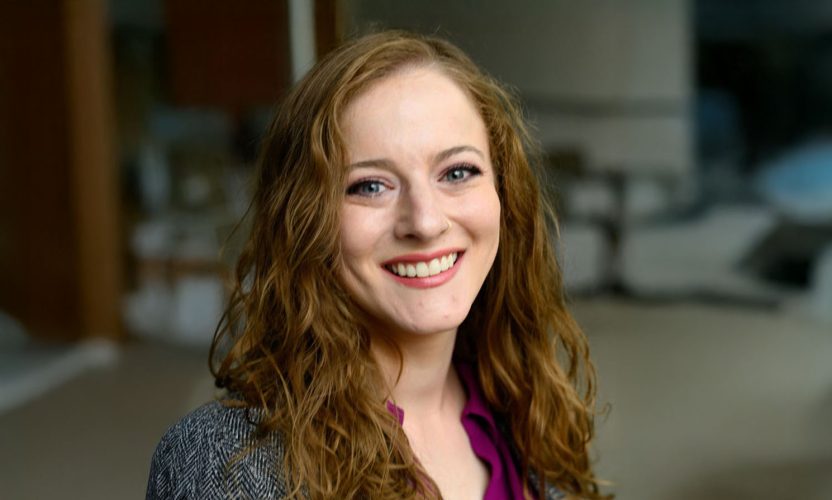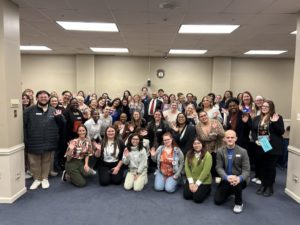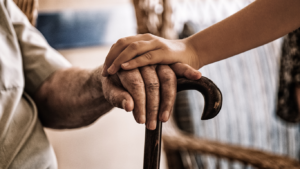LEXINGTON, Ky. – In the world of academia, women in higher education often manage multifaceted expectations, as well as perspectives and challenges not shared by their male colleagues. Rebecca Bosetti, Ph.D., assistant professor at the UK College of Social Work (CoSW), spoke on those challenges through a virtual event with Professors Without Borders.
Professors Without Borders is a non-profit dedicated to improving access to quality education, with the goal to educate, inspire, and empower. Bosetti’s talk, “Your Wellbeing: Dealing with the Grind of Academia”, was included as part of Professors Without Border’s Women in Higher Education Fellowship.
“Being selected to give this talk not only validates the efforts I’ve made in my career as a woman in higher education but has given me the chance to share my experiences, foster solidarity among a phenomenal group of scholars, and uplift and encourage other women to thrive in academia and understand how critical their presence is in academic spaces,” Bosetti said.
Bosetti’s talk was divided into five primary topics, each covering an issue that applies to women in academia.
The first topic, the academic expectations, delved into the typical expectations that come with an academic position, spanning research, teaching, service, and professional development. She also spoke on metrics needed to achieve promotion and tenure, how to read and understand a contract, and determining fair compensation for labor provided.
Reflecting on her own experiences in academia, the next topic covered was normative experiences, sharing insight and the lessons Bosetti has learned along the way.
“One of my favorite things I talked about was a system I developed in my PhD program to help me with writing productivity. I call it Laundry Writing. The concept is simple: I will put a load of laundry into the washing machine and as soon as it starts, I have to write,” Bosetti explained.
“During this time, I don’t worry about spelling, grammar, citations, or flow – it is exclusively a time to get words on the page and help me see my ideas in front of me. Once the washing machine turns off, I put the wet laundry in the dryer, turn it on, and then begin editing. The whole time my laundry is drying, I fix incomplete sentences, reorganize ideas and paragraphs to build a cohesive narrative, insert citations, and engage in wordsmithing.”
This concept took the pressure off the feeling of needing to write a paper perfectly, allowing ideas to flow and then polish those ideas into a paper.
Lessons learned was the next topic covered, as Bosetti focused on critical takeaways that she hoped to pass on to the fellows. These takeaways included things like dealing with failure and rejection, owning your expertise, and how to find the right mentor.
The final two topics covered were on the importance of the things you say yes to, and cultivating a community of empowered women.
“I tried to impress on the fellows how critical this community is because academic work tends to see us as productivity machines instead of whole people,” Bosetti said. “A community sustains you and fosters growth for the whole person so you can effectively do the work you care about.”
Through this fellowship, Bosetti was able to encourage global engagement of female faculty and recognize their invaluable contributions to the world of higher education.
“The most important piece of advice I wanted to impart on the women in this fellowship is the need for solidarity and building a strong support network to encourage and uplift other women in academia,” Bosetti said. “I hope the fellows take away how critical it is for them to be in academia, and how having women with diverse experiences in higher education makes the space more productive, accessible, progressive, and inclusive for everyone.”






